Why Juniors Shouldn't Think About Handicaps Until Their Teens
Katie Dawkins discusses why junior golf should be focused on growing the person, not how low their handicaps are. Is too much pressure applied to kids?
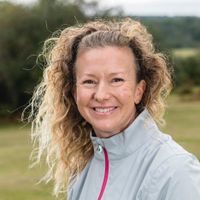
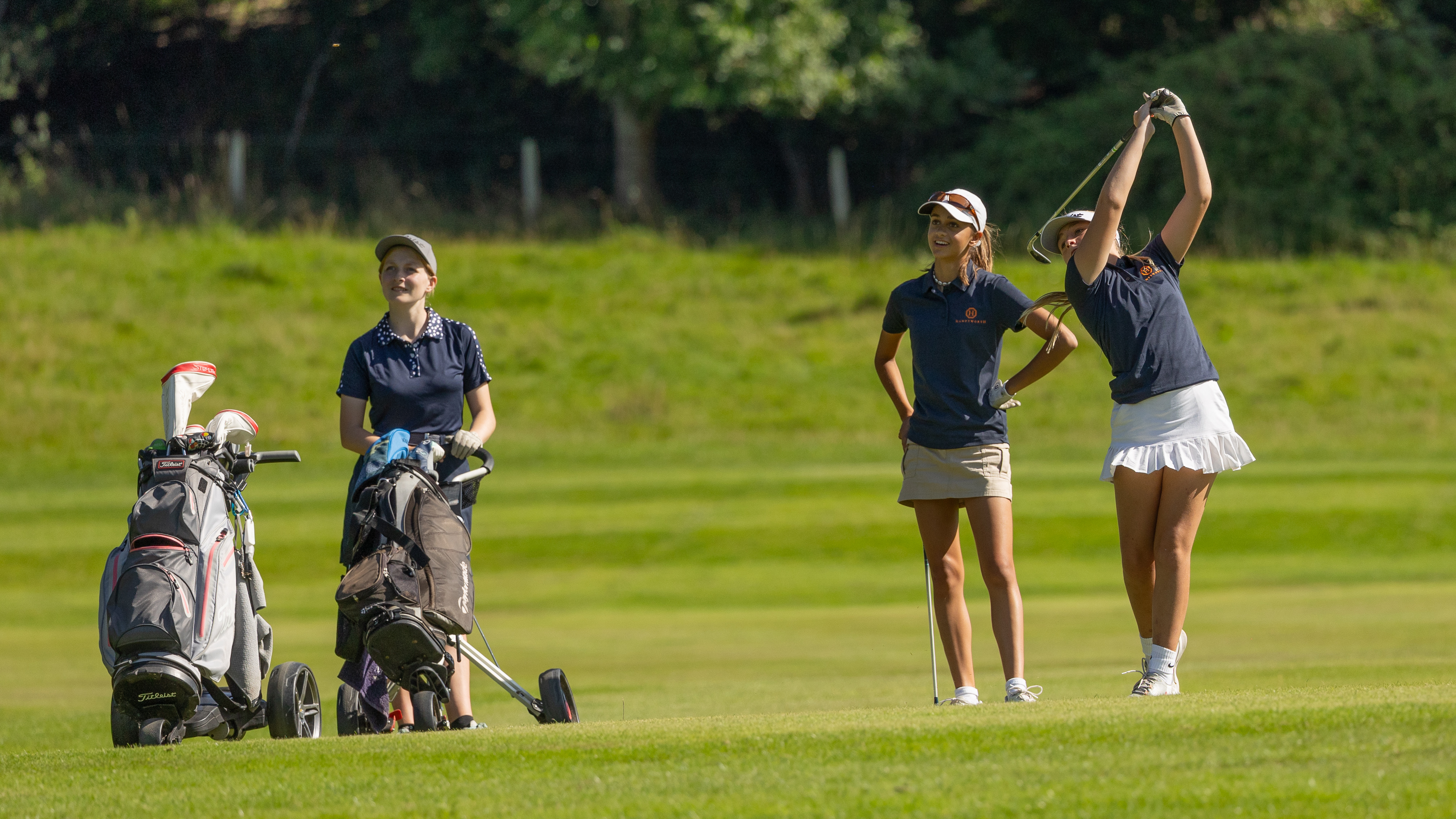
We all know that sport should be fun. As a golf coach, I've come across plenty of cases where the child is continuously being pushed to improve so is not having fun at all. That old age situation when the adult is trying to live their own dreams and aspirations through the child usually results in that child leaving their chosen sport.
So, what can be done to inject the fun back into the grassroots side of our sport and ensure we retain those youngsters who fall in love with golf?
The USKids Golf Tour, (USKG Tour) which reaches worldwide, is all about golfers being able to get out and compete on a golf course that is age appropriate to them as children. The age groups are matched to tees that fit their strength and not elite expectation.
As a result of this approach, they've created a community of both junior golfers (especially girls) and like-minded parents. Very few have handicaps and nobody is made to feel like they don't belong.
There's a big argument that junior golfers shouldn't even think about handicaps until they've been playing a while, as Paul Ring from the UK USKidsGolf Tour highlights.
"Handicaps should be something that junior golfers focus on in their teenage years. Prior to that it should all be about just getting out on the course and having fun. We aim to create a place where these children can compete but have fun doing it. We see them grow as people and often achieve great things off the back of this no pressure environment."
On the USKG Tour there are 5 medals up for grabs in each age category. If there are only 6 kids in that category then they share the 5th medal and are all included in the photos in prize giving. Ring shared the three things that he set out to create when USKG Tour was established - welcoming, low key and fun.
Subscribe to the Golf Monthly newsletter to stay up to date with all the latest tour news, equipment news, reviews, head-to-heads and buyer’s guides from our team of experienced experts.
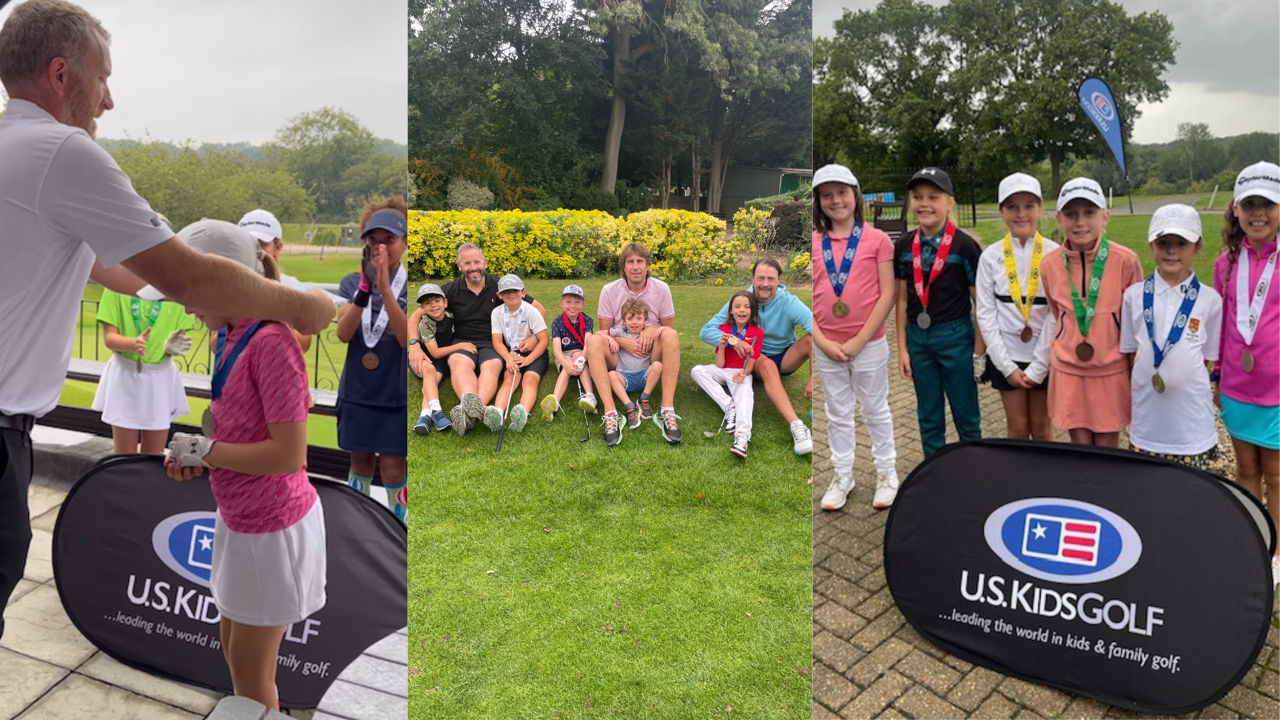
The UK USKG Tour is welcoming whilst maintaining a competitive element
If I asked a golf club that has an established junior section, or perhaps a county set-up about their interpretation of what junior golf should be, the likelihood is that the answer would be different to Ring's beliefs.
Many would include the words handicap, matches and trophies. They'd want the section to be the best and be competitive. This is fine, but only when kids are ready for it. Collecting a group of low handicap juniors like a trophy cabinet is all very well, but will it develop an environment where children's well-being is paramount?
Creating a platform where juniors can just be themselves and enjoy the game, will result in them flourishing as golfers. Maybe not immediately, but when the time is right they will then step into the spotlight and shine. Excessive pressure from the off will see fewer persevere with the sport.
At Hamptworth Golf Club I set up a scholarship programme with similar goals as Paul Ring. Firstly, we focus on junior golfers as human beings and their ability to get low handicaps comes second. The priority is to ensure they are happy, encouraged, motivated and above all, they have fun with their golf. This membership is not about forming an invincible side to crush opposition and be the best in the area. It's not about trophies and glory for the golf club, it's about a safe zone where they can play golf and be kids. The result will inevitably be better golfers. We all play better when we are at ease in our surroundings and have found our 'tribe'.
When asked about childhood memories, many of us will reflect on those when we felt humiliated or out of place. Growing the game of golf from the roots up should be about making every child feel like they belong. At no point should anyone ever be bullied or made fun of - inclusivity should run high on the list.
One of my pupils Anthony Stephens plays regularly on the USKG Tour. Even when playing in the Venice Open earlier this summer, he felt at home.
"The other kids, whatever their ability, were so friendly and supportive of each other. I've made so many friends with the guys I played with in Italy and we are meeting up again when we play in the USKG Rome Classic in October. It's a big family and different to some environments I've been in where I've felt like I don't belong," says Stephens.
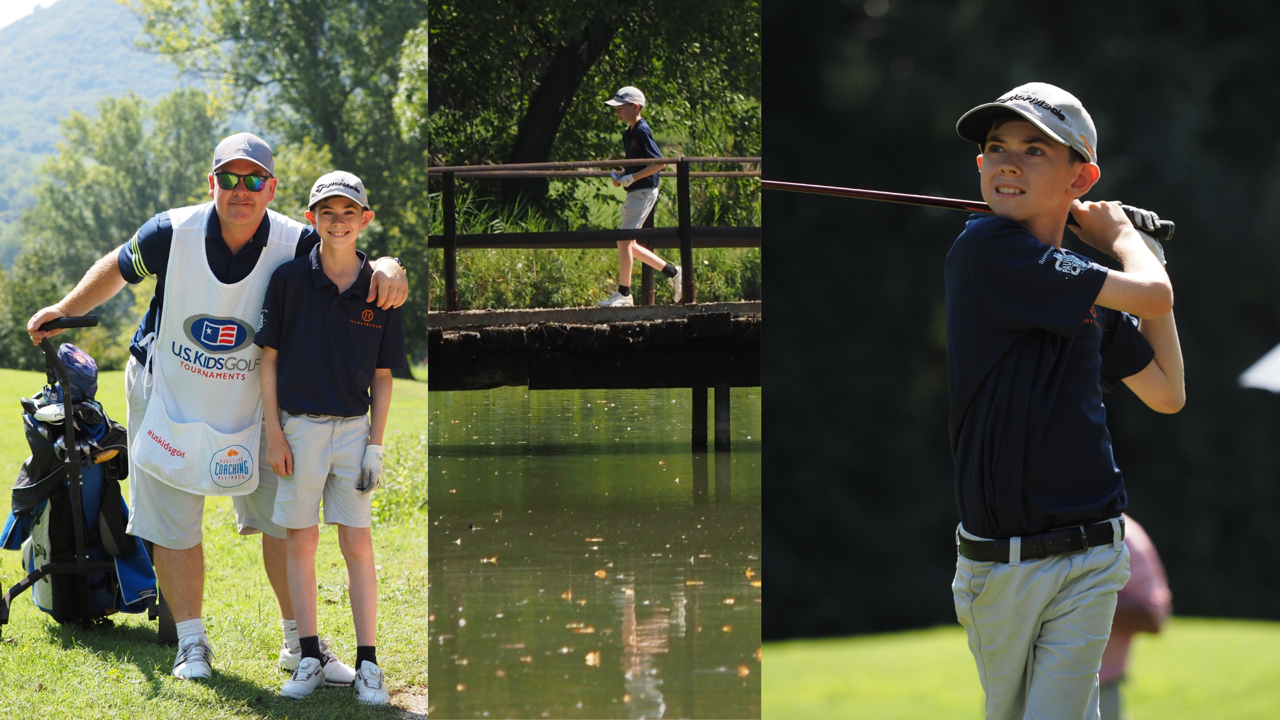
Anthony Stephens plays on the USKG Tour both in the UK and Europe
When juniors do reach an age where they are confident to compete, perhaps even then there should still be a focus on that player as a person, way before assessing how they perform.
So many county set-ups, including Hampshire Girls, are player focused ahead of handicaps etc. They offer a brilliant pathway that sees affordable training sessions (£50 for 6 in the year) and a welcoming environment. Some counties aren't as inclusive and focus more on handicap drops and put too much pressure on kids to play qualifying rounds every time they go out. This is intensive and can put some children off. I believe this 'pathway' approach to junior golf will see far more players stay in the game and I would place a hefty bet that more girls would also be retained.
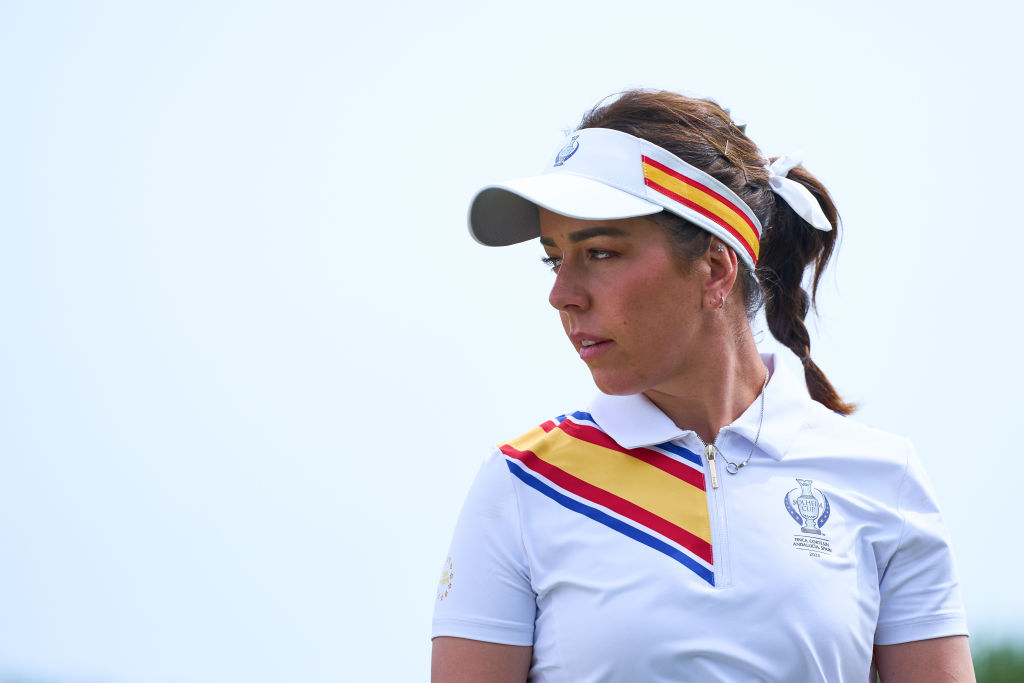
Georgia Hall went through Dorset county training
PGA Professional Ben Christey-Clover experienced this journey as a parent of a high-flying county junior and has also coached the Dorset county girls' team. He has seen first-hand that there's a lot of pressure on players to focus whole-heartedly on turning professional. "They begin to be over-analysed and scrutinised, asked when they're turning pro, and the reality is they just love playing golf and happen to be quite good at it."
Too much pressure from parents and county bodies on these girls so often results in them losing the love for the game and giving up. Just because of the egos of adults. The issues aren't with these kids, they stem from the parents and coaches seeking glory. They want it on their CV, they want the glory of one of their children/pupils making it big.
Christey-Clover adds, "Many parents will see one county girl doing well and instantly up their game to involve everything that tour players would have in their entourage. What effect this has on the child in question is a huge mountain of pressure to live up to those expectations and investment. This pressure so often doesn't come from the county but the parents trying to keep up with the Joneses. The handicap system is a tricky one and these juniors develop and improve so fast. Cue the grumbles about handicaps being false and my kid should be doing better than yours etc."
What else can help kids get the most out of their golf experience? Dave Atthis is the father of Hampshire junior golfer Millie Atthis. Millie swims and plays golf and is happier doing both. He says, "Having another sport or pastime takes them out of that golf bubble and puts them into another. They have activity choices, so the sole focus isn’t on golf, therefore the blame can’t just be on golf."
Children need to grow up with plenty of variety. A child who solely plays golf can so easily resent it and the ramifications of failure are massively magnified. This can in fact stifle a child’s enjoyment of the game and therefore drive them away from it.
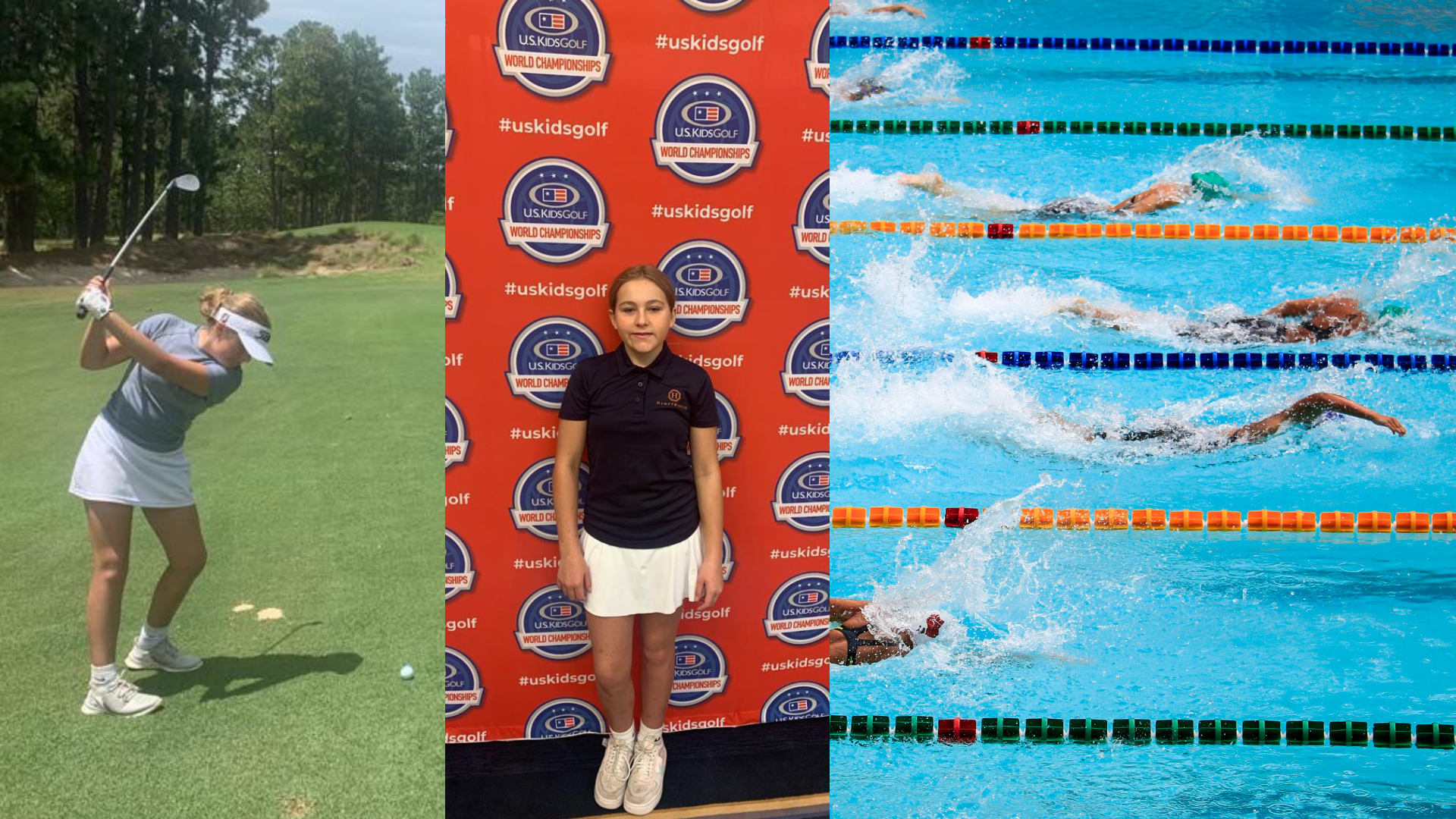
Millie Atthis loves golf and swimming equally
Play different sports, especially team sports. Other interests will be so healthy for a junior’s golfing success. They can be used as a distraction following a bad round or as a treat following a good round. Let's hope the future of junior golf is a bright and a fun one.
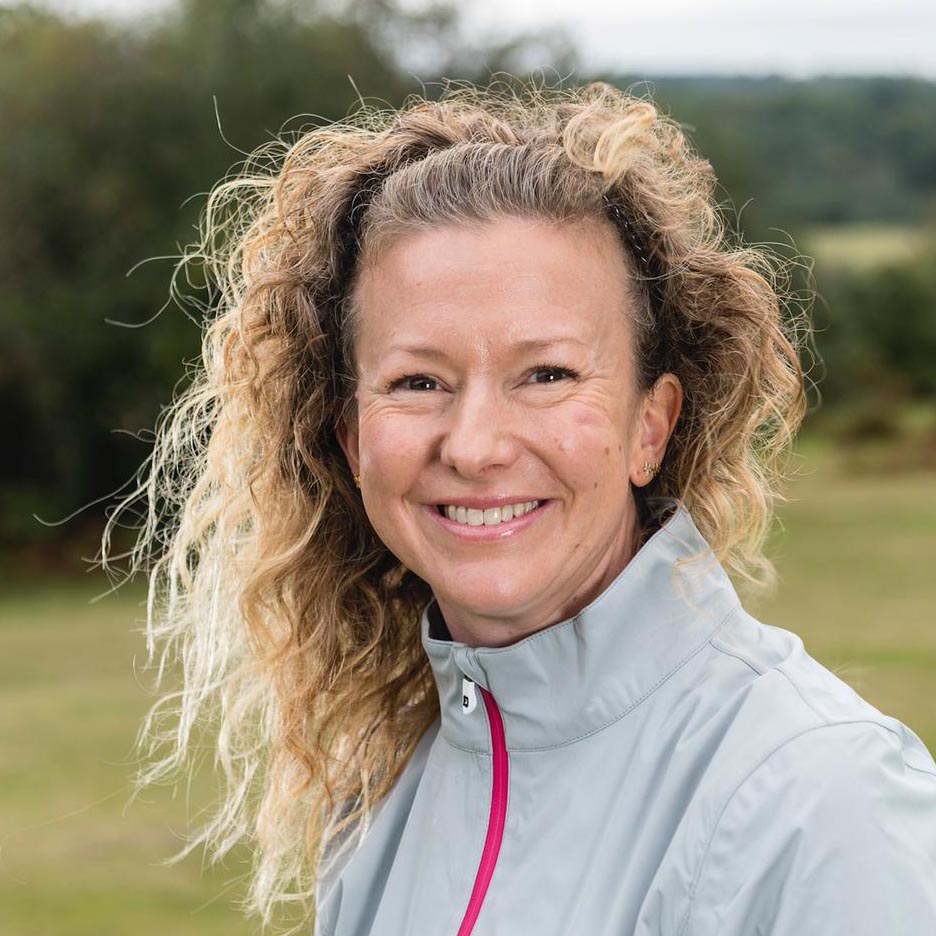
Katie is an Advanced PGA professional with over 20 years of coaching experience. She helps golfers of every age and ability to be the best versions of themselves. In January 2022 she was named as one of Golf Monthly's Top 50 Coaches.
Katie coaches the individual and uses her vast experience in technique, psychology and golf fitness to fix problems in a logical manner that is effective - she makes golf simple. Katie is based in the South of England, on the edge of the New Forest. An experienced club coach, she developed GardenGOLF during lockdown and as well as coaching at Iford Golf Centre, The Caversham- Home of Reading Golf Club and Salisbury & South Wilts Golf Club.
She freelances, operating via pop-up clinics and travelling to clients homes to help them use their space to improve.
She has coached tour pros on both LET tour and the Challenge Tour as well as introduced many a beginner to the game.
Katie has been writing instructional content for magazines for 20 years. Her creative approach to writing is fuelled by her sideline as an artist.
Katie's Current What's In The Bag
Driver: TaylorMade Qi10 9degrees.
Fairway: TaylorMade Qi10 5wood
Hybrid: TaylorMade 4 & 5
Irons: TaylorMade 770 6-AW
Wedges: TaylorMade Tour Grind 4 54 & 58
Putter: TaylorMade Tour X 33"
Favourite Shoes: FootJoy HyperFlex with Tour Flex Pro Softspikes on the course.